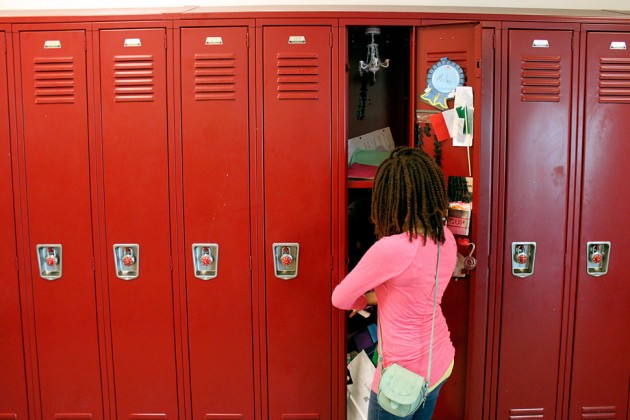>> School’s back in session. It’s time to tighten the reins on your family schedules. No more letting the little ones stay up late to catch fireflies or letting the big ones sleep til noon. No, now it’s all about bells: alarm clocks, snooze buttons, cell phone reminders, and the school bell… the five minute warning, three minute warning, and then the late bell.
School’s back in session. It’s time to tighten the reins on your family schedules. No more letting the little ones stay up late to catch fireflies or letting the big ones sleep til noon. No, now it’s all about bells: alarm clocks, snooze buttons, cell phone reminders, and the school bell… the five minute warning, three minute warning, and then the late bell.
For middle- and high-school-aged students, the Center for Disease Control says those bells are ringing too early. In early August, >>the organization released a report stating that too many teens don’t receive the recommended nine hours of sleep needed to help prevent a host of health risks and poor academic achievement, because fewer than 1 in 5 middle and high schools start at the recommended start time of 8:30 am.
Moving in the right direction, >>Durham’s Board of Education voted to change start times for the 2016-2017 school year. Most high schools will start at 9:00 am, middle schools at 7:30. Elementary schools will have tiered start times ranging from 7:30 to 9:15.
Why not move the middle schools later, too? Why drive parents crazy with times that are either too early or too late depending on the elementary school? The same answer that prevents solutions to most of the problems in public education: lack of funding. Durham, for example, would have needed over $400,000 more to have busses running at the same time for all schools.
Still, moving start times later for high schools is a positive step that other North Carolina schools should consider. Right now, districts — not the state — set start times and one of the arguments against them is that students at schools with later start times have to miss too much class time to make it to athletic competitions or that they don’t have time to devote to school work and an after school job. But, if the state were to mandate a later start time, schools’ times would be consistent, and people would adjust.
However, it’s also impossible to please everyone. Often times, the drawbacks of an early start time are simply passed to elementary school students when the schedules change, and, of course, each parent’s work situation is going to bring its own challenges.
In my mind, mandating a time change is low on the priority list and should still be up to districts. For one thing, North Carolina would have to have enough money to help schools with the additional transportation costs and when the state is slashing other educational necessities, I don’t think bussing should see the funding. The American Psychological Association found that >>later start times benefited students in affluent districts — those with fewer free and reduced lunches. Students from disadvantaged schools didn’t see the benefit, possibly, the report said, because there were so many other risk factors. Let’s put the money (if there ever is any) where it is needed most.
>> Jennifer Brick is a writer and teacher in Durham, North Carolina. She earned her Masters of Fine Arts in Creative Nonfiction from Goucher College. Follow her on Twitter @jenbrickwrites.
Jennifer Brick is a writer and teacher in Durham, North Carolina. She earned her Masters of Fine Arts in Creative Nonfiction from Goucher College. Follow her on Twitter @jenbrickwrites.

There are no comments
Add yours